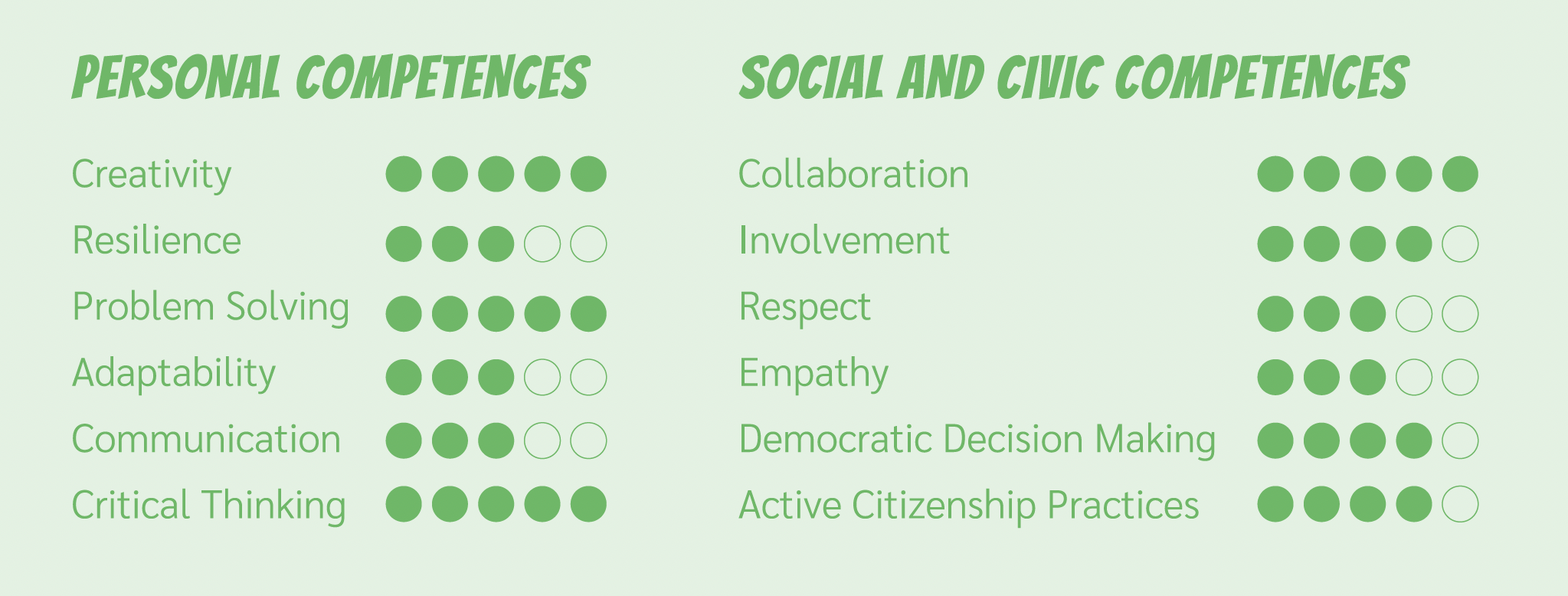8
GameON: Educational game design. Methodological Models
GameON: Educational game design. Methodological Models
Inhoud
This playlist will help you familiarise yourself with the methodological models that could be used in the game design process. These methodological models were developed during the GameOn good practice mapping phase we asked 23 facilitators of game design and interviewed extensively 10 of them in the podcast series “Unfolding Game Design” where we got to know more about the different approaches used in the game design journey.
Complete playlist activities to learn about:
- Methodological models that could be used in the game design process.
- Discover the educational games developed according to one of the presented models.
- Reflect upon the models that could be used in your environment with your target group.
Follow the following playlist activities to develop your understanding of methodological models that could be used in the game design process. Start by watching this introductory video:
The international partnership “GameOn” created this playlist to promote inclusion, participation, and critical thinking through game design. Learn more about this partnership here.
Expert partners:
Nexes (ES) – the lead partner, Idealúdica (ES), Universitat de Barcelona (ES), BalkanIdea Novi Sad (SR), Nectarus (LT), Associazione Interculturale NUR (IT).
Co-funded by the Erasmus+ Programme of the European Union
Cover image from Unsplash.
Activiteiten om te voltooien
Voltooi de volgende activiteiten, verdien badges en je zult de voortgang van je playlist zien
Inhoud
Based on our research, the GameOn partners produced seven models to approach game design. The Formative approach is one of them. Watch this video explainer to learn more about this model.
Usually, the formative process is practised in non-formal education settings. Young people join in designing one or more game prototypes.
Young people get involved in most game design phases. The project does not include the dissemination and multiplying stage.
The primary goal is to learn and experiment with the game design process.
Following a formative approach, young people get involved in the following game design stages:

Formative game design has unique features.
Process
Usually, young people get involved in collaborative work through a guided and planned participation process. Participants have a deep interest in learning how to create a game they can use in the future.
Each small group creates a different game, usually in a prototype version. In many cases, they miss a more extended testing phase and do not focus on the game dissemination.
Such a game design approach has a limited and structured time from 8 days to 9 months, depending on the project’s structure.
Participants
Depending on the project topic, young people with various profiles participate.
Other actors
Youth workers working at non-governmental organisations and expert trainers facilitate the process.
Structure
Usually, the formative game design offers training courses where young people enrol with a particular interest in the topic, the potential of games as resources, or in the game design process.
Guidance
Group facilitators and expert trainers facilitate specific training sessions.
Competences
These are some personal, social and civic competences young people can develop in formative game design projects.

Examples
This activity is part of the wider educational effort of the international partnership “GameOn” to promote inclusion, participation, and critical thinking through game design. Learn more about this partnership here.
Expert partners:
Nexes (ES) – the lead partner, Idealúdica (ES), Universitat de Barcelona (ES), BalkanIdea Novi Sad (SR), Nectarus (LT), Associazione Interculturale NUR (IT).
Co-funded by the Erasmus+ Programme of the European Union
Cover image from Unsplash.
Hulpmiddelen
Ontvang een activiteitenbadge
GameON: Educational game design. Formative model Behaal deze badge
Owners of this badge learned more about the Formative game design model and reflected upon the existing game design practice and their own experience.
The evidence of completing this activity is included in the badge and was reviewed and verified by the organisers.
This activity is part of the wider educational effort of the international partnership “GameOn” to promote inclusion, participation, and critical thinking through game design. Learn more about this partnership here.
Taken
Taak nr.1
Bewijs bevestigd door: zelf goed te keuren
Share your thoughts on the following questions to earn the activity badge:
What elements of the Formative model did you discover?
Could this game design model be used in your educational work with your target group?
Activiteiten: 7
Gestart: 43
Voltooide playlist: 1
Delen:
Organisatoren
GameOn - Game Design for Inclusion
Wijzigen in een andere taal:

